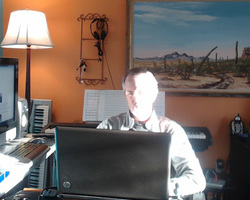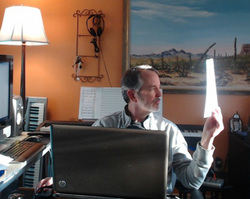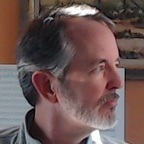Twitter can be a difficult way to hold a conversation. I wanted to take this route to make my position clear to you.
My stock answer about AGW -- and my sincere belief -- is that climate science is an important field but should not be used as a political tool to control the lives of individuals. I am deeply concerned that this is the agenda of the IPCC.
To my observation, the AGW debate -- particularly in the United Nations -- has been about politics and money. AGW has become a tool to promote the political aspirations of both domestic and foreign politicians. As such, the publicity and the politics seem to me to infect the science. Most predictions are driven by computer models, whose inaccuracies are now well documented. I have seen little willingness of those who make wild predictions to be accountable for their follies. This does not cultivate an atmosphere of trust.
Perhaps the more disturbing aspect of the AGW debate is the irresponsible witch hunt mentality that characterizes it. Those who question consensus -- one of the purest scientific acts imaginable -- are not only branded as irresponsible but treated with such vile contempt (e.g. comparisons to Holocaust deniers) that it brings into question the motives and character of those who claim an AGW consensus.
The hallmark of a skeptic is not stubbornness. It is openness. I have seen enough science that makes me question consensus. Not only is this fair, it should be desirable. To report on the IPCC is not to report on climate science. They are a political body. To report on the science involves, in my opinion, two crucial factors:
1. Recognize that there is a legitimate, non-trivial scientific skepticism.
2. Seek to disprove both sides.
As I follow climate science, I try to do both. I am fully aware of the scientific basis for skepticism of AGW. I regularly admit and reject information from both sides. That, to me, is the only way to approach this, and I apply that mentality to anything. For example, when it comes to nutritional science, I treat the latest pronouncement like Texas weather: just wait a bit and it will change radically. This has been the case with cholesterol, fat, butter, salt, and so on. The hype obscures the science.
As for climate science, I apply Occam's Razor to it. Given the wild climate fluxuations over our planet's history, I find it difficult to substantiate the supposed imminent doom due to CO2 which is at the same time so beneficial to life and so minute a fraction of our atmosphere. Industrial CO2 emission is still, for me, an unnecessary entity when compared to at least three theories that stand in its way.
1. I follow the science of core samples -- used by all climate scientists -- which indicates that historical warming periods precede CO2 rises by up to 800 years.
2. I also follow the science on solar activity, which indicates that not only do sunspots play a major role in the climate of our planet, but does so throughout the solar system.
3. The way the ocean traps and releases heat is a significant factor. To wit, although it may be storing CO2, it may also be releasing heat stored from many thousands of years ago.
These are not trivial concerns, nor are they dreamed up by crackpots. They are the subject of research by serious, dedicated scientists. If we simply dismiss these things and glom on to a majority opinion, we do ourselves a huge injustice. We should understand these theories and reject them if the science is not sound. But this is not what is happening. Instead, there is a sustained chorus of "DENIER!" and attempts to slander and brand as heretics those who pursue an understanding of these issues.
If I forego critical thought and merely "accept the consensus," I am really saying I do not understand the thing but am acting on faith and heeding the authority of an established orthodoxy. This is no different than a religious orthodoxy, where those who are adept with the canonical writings are outraged if the "unenlightened" question their authority. But I believe a critical thinker -- even one who is not a climate scientist -- can understand much of this. It is neither paranormal nor mystical.
I hope you understand I am trying to have a conversation that is not just civil, but hopefully one that is enlightening.
Sincerely yours,
Aaron Dyer




 RSS Feed
RSS Feed